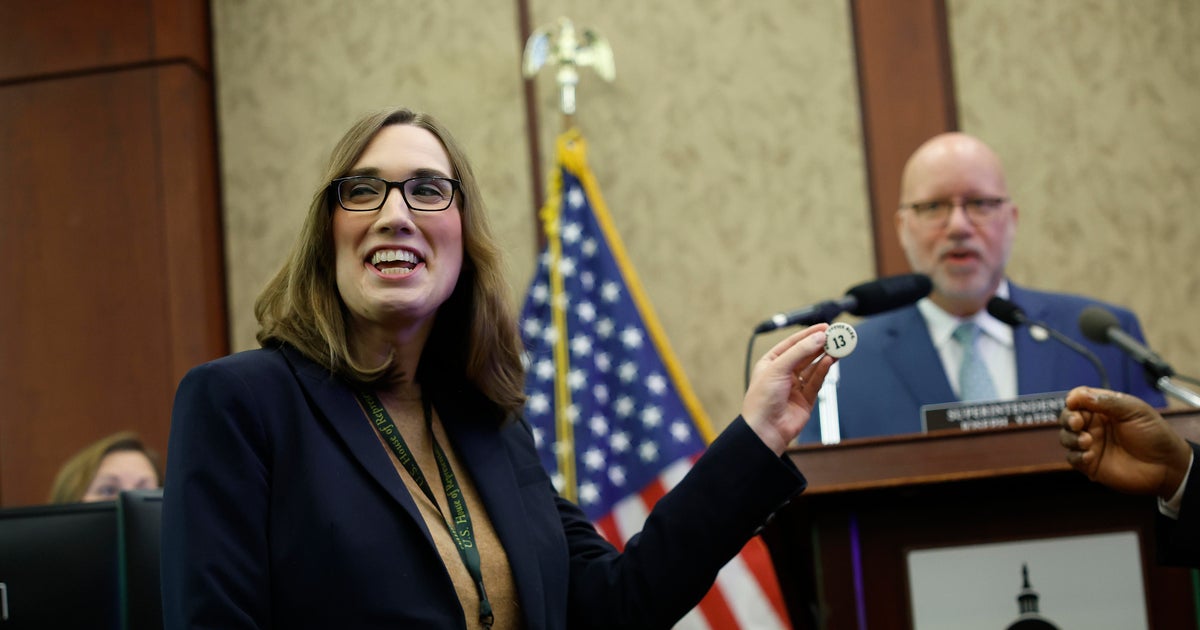5 common fertility questions, answered
From menopause to egg freezing, the topic of fertility is vast - and for people who can get pregnant, it's a topic that produces a lot of questions.
And yet, sometimes it isn't something we hear or learn much about until later in life — or not at all.
In a piece about her own fertility journey, CBS News' Nikki Battiste explained infertility did not come up with friends or family.
"I had never done a television story about it, and it was not a topic anyone really spoke about openly," she wrote. "I am now embarrassed to admit how little I knew about reproductive health, fertility and infertility - until it became my life."
To better understand some basics, we gathered expert insight into the following common fertility questions:
Will I struggle to get pregnant?
Everyone's fertility journey is different, but the most important thing people can do is pay attention to their bodies and their menstrual cycles, says Dr. Banafsheh Kashani, double board-certified reproductive endocrinologist and infertility specialist and OB-GYN.
"Your menstrual cycle — it's almost like a vital sign like your heart rate, your blood pressure, telling you if your hormones in your body are functioning the way that they should, and if you're ovulating and releasing an egg," she says. "So without a normal menstrual cycle that comes in a predictable timeframe (or) not getting your cycles without birth control or hormones, then there's something that may be affecting your ovulation and that's automatically going to put you in a category where you may have more trouble getting pregnant."
Kashani says warning signs may also include worsening acne or increased hair growth on your face and chest.
"This can be a sign of a hormonal issue where your testosterone levels are elevated, and that can also lead to difficulty getting pregnant."
When should I seek a fertility consultation?
The American College of Obstetricians and Gynecologists recommends talking to an OB-GYN about an infertility evaluation if you are older than 40 and trying to get pregnant or older than 35 and have not gotten pregnant after 6 months of trying.
If you're having irregular periods and looking to start a family, Kashani recommends consulting your OBGYN or fertility specialist right away.
"There's no reason that you should wait months and months and months, because there's something that was probably hormonal at play, and you need to have some labs and investigation to see what's causing it."
Luckily, she adds, there are easy treatments — "but you definitely don't want to delay if you're noticing that," she says.
How important is age when it comes to fertility?
"I wish it was a myth, but the biological clock unfortunately is real," Kashani says. Age is the "single most important factor when it comes to fertility."
That's because by the time people hit 30, the number of eggs starts to decline, she says. In addition to quantity, egg quality also declines, which can lead to more risks of abnormalities of those eggs, which can cause genetic issues or chromosomal issues for the baby.
"It becomes more drastic after the age of 35... but in the end again, even in your early 30s, you're losing eggs and the quality is going down. And by the time you hit 40, the number drops even more," she says.
- Egg freezing is a major fertility topic. Here's what the process is like.
- What is perimenopause? The often-overlooked phase of menopause, explained.
Do any other factors play a role in fertility?
This short answer: Yes.
"Your lifestyle matters," Kashani says, citing smoking and nutrition as particular factors.
"Smoking definitely impacts fertility and can actually cause women to go into menopause a couple years early, and it can affect egg quality," she says. "the food we eat definitely over time can have an effect. Having more processed foods or fast foods, those things are not good and you want to try to focus on more whole foods natural foods."
Excessive alcohol consumption may reduce fertility in women as well, according to the American College of Obstetricians and Gynecologists.
I have PCOS or endometriosis. Will that impact my fertility?
Endometriosis, a condition that can cause painful periods and abnormal tissue growth, and PCOS (polycystic ovary syndrome), a hormonal disorder that affects the ovaries, can each affect fertility.
"50% of women with a diagnosis of endometriosis may have fertility issues," Kashani says. This is because inflammation from endometriosis may "damage the sperm or egg or interfere with their movement through the fallopian tubes and uterus," according to the American College of Obstetricians and Gynecologists.
"In severe cases of endometriosis, the fallopian tubes may be blocked by adhesions or scar tissue," the organization's website notes.
PCOS can impact fertility through irregular periods, but treatments are available.
"Treatment is tailored to each woman according to symptoms, other health problems and whether she wants to get pregnant," according to the American College of Obstetricians and Gynecologists.



